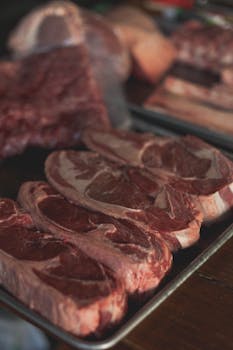
**
Thyssenkrupp's recent commissioning of a new slab caster and strip mill at its Duisburg site marks a significant milestone in the company's modernization strategy and a major step forward for European steel production. This multi-billion-euro investment signifies a commitment to enhancing efficiency, boosting production capacity, and improving the quality of its steel products, solidifying its position in the global steel market. The project, years in the making, boasts cutting-edge technology designed to address the increasing demands of the automotive, construction, and energy sectors.
A Modernization Boosting European Steel Production
The Duisburg plant, a cornerstone of Thyssenkrupp's operations, has undergone a substantial transformation. The new slab caster and strip mill represent a significant upgrade to its existing infrastructure. This investment isn't simply about replacing old equipment; it's about implementing innovative technologies that improve every stage of the steelmaking process. This modernization project aims to:
- Increase production capacity: The new facilities are designed to significantly increase the plant's output of high-quality steel slabs and strips. This expanded capacity will allow Thyssenkrupp to better meet the growing global demand for steel.
- Enhance product quality: The advanced technologies employed in the new slab caster and strip mill ensure a higher level of precision and consistency in the final product. This translates to improved material properties, reducing defects and enhancing the overall quality of the steel.
- Improve energy efficiency: Sustainable practices are increasingly crucial. This project incorporates energy-saving technologies, contributing to a reduced carbon footprint and lower operational costs. This focus on green steel production aligns with the broader industry shift towards environmentally responsible manufacturing.
- Strengthen competitiveness: By enhancing efficiency and quality, Thyssenkrupp aims to improve its competitive edge in the global steel market, allowing it to compete effectively with steel producers worldwide.
Cutting-Edge Technology at the Heart of the Project
The heart of this modernization project lies in the advanced technology incorporated into the new slab caster and strip mill. These aren't simply updated versions of older machines; they represent a significant leap forward in steel production technology. Key technological advancements include:
- Advanced automation: The new facilities are highly automated, reducing manual labor and improving consistency. This level of automation minimizes human error and optimizes the production process.
- Improved process control: Sophisticated sensors and control systems monitor and regulate the steelmaking process in real-time, ensuring optimal performance and minimizing waste. Real-time data analysis allows for continuous improvement and optimization.
- High-speed casting and rolling: The new equipment boasts enhanced speed and efficiency compared to its predecessors, leading to faster production cycles and increased output.
- Predictive maintenance: Embedded sensors and AI-powered analytics enable predictive maintenance, minimizing downtime and ensuring the continuous operation of the facilities. This proactive approach to maintenance further enhances efficiency.
Impact on the German and European Steel Industry
This investment by Thyssenkrupp has far-reaching implications for the German and broader European steel industry. It signals a renewed commitment to domestic steel production and signifies confidence in the future of the industry. The modernization project:
- Secures jobs: While automation might lead to some job displacement, the investment will ultimately create high-skilled jobs in engineering, maintenance, and operations, contributing to the local economy.
- Boosts economic growth: The investment stimulates economic growth, supporting not only Thyssenkrupp but also the numerous supplier companies involved in the project.
- Strengthens the European steel sector: The upgrade positions the European steel industry more competitively in the global marketplace, particularly against low-cost producers in other regions.
Challenges and Future Outlook
While the commissioning of the new slab caster and strip mill is a significant achievement, Thyssenkrupp faces ongoing challenges in the steel industry. Fluctuating raw material prices, global competition, and evolving environmental regulations will continue to influence its operations. However, this significant modernization investment demonstrates Thyssenkrupp's commitment to adapting to these challenges and securing its future as a leading steel producer.
The company's strategic focus on high-quality, specialized steels, coupled with its ongoing investments in technology and sustainable practices, positions it well for continued success in a rapidly changing market. The Duisburg plant modernization serves as a testament to the company's resolve to remain at the forefront of the global steel industry. The future success of Thyssenkrupp will rely on its ability to effectively integrate this new technology, optimize its production processes, and continue to innovate in response to evolving market demands and environmental concerns. The long-term impact of this investment will be closely watched by industry analysts and competitors alike. The modernized Duisburg plant serves as a case study for the future of steel production in Europe and beyond, emphasizing the importance of innovation, sustainability, and efficient automation in achieving global competitiveness. The success of this project could pave the way for similar large-scale modernization initiatives within the European steel industry, spurring further growth and innovation.




















